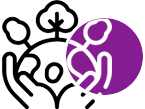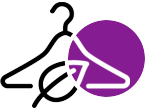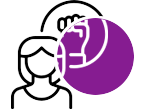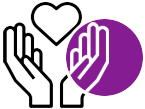
Modern Slavery in Fashion - Why this needs your attention.
Share
Hard to believe but slavery exists today and it is all around us, just not in plain sight. According to antislavery.org, around 40 million are trapped in modern slavery:
- 1 in 4 are children
- Almost 3/4 are women and girls
There are different types of modern slavery and they include the following:
- Human trafficking. The use of violence, threats or coercion to transport, recruit or harbour people in order to exploit them.
- Forced labour. Any work or services people are forced to do against their will under threat of punishment.
- Debt bondage/bonded labour. This is the most common form of slavery. People trapped in poverty borrow money and are forced to work to pay off the debt. They are tricked into working for little or no pay with no control over their debt. Often this debt is passed down to the children to fulfil and so the cycle continues.
Definition of Modern Slavery
According to CNN Freedom Project, modern slavery is described as:
"When one person completely controls another person, using violence or the threat of violence to maintain that control, exploits them economically and they cannot walk away"
Slavery in the Fashion Industry
How can this exist in today's world? Slavery ended hundreds of years ago, so how can we possibly be facing an entire industry rife with slavery and extreme exploitative practices?
The answer lies in a total lack of transparency and an unregulated industry with no watch dog given authority to scrutinise and punish practices of brands, manufacturers and the entire supply chain.
The industry has been allowed to operate behind closed curtains, never revealing who or how their products are made. They've been allowed to hide behind wonderfully crafted company policies talking a good game but rarely, if ever, walking the talk.
It's been far too lucrative for brands to outsource their manufacturing to cheaper markets to cut their production costs and keep themselves at arms length from practices engaged by the outsourced provider.
I do note that brands who choose to outsource do not have full control over their supply chain however, in this day and age, I would assert that outsourcing doesn't relieve you of your obligation to ensure fair and equitable practices are being employed, especially if it's part of your policy.
Slavery in the fashion industry begins at the very start of the supply chain with the farmer who grows the cotton, to those who spin the fibre to make the yarn, to those who sew our garments and finally to those who model the clothes we wear.
According to Free the Slaves, slavery flourishes where people cannot meet their basic needs and lack economic opportunity, education, health care, and honest government. Slaves usually come from the poor, the desperate, the uneducated, the marginalised, the vulnerable and the unprotected.
Rana Plaza, Bangladesh
It was the tragic incident at Rana Plaza in Bangladesh that many consumers became aware of the horrendous practices and working conditions in outsourced garment factories.
On 24 April, 2013, an 8 storey commercial building located in the outskirts of Dhaka, Bangladesh, collapsed, killing 1,134 people and injuring thousands more.
On 23 April, large cracks were noticed in the building's structure and the lower levels housing banks, and shops immediately vacated.
However, the alarms raised were ignored by garment factory owners who had upper floors. Garment workers were pressured by management and coerced to come into work on 24th April. Only hours later, the building collapsed leaving thousands of families devastated and still coping with this loss.
Many of the workers were the sole bread winners for their families.
4 things you can do to combat modern slavery
- Build knowledge - The more you know and learn about this topic, the more ways you can find out how to help. You'll learn which brands are doing the right thing, and how you can support these brands
- Join movements - There are many wonderful organisations working to end slavery. They help to free people from slavery and then support them to re-build their lives. I've already mentioned Free the Slaves above but there are other organisations as well such as Anti-Slavery International that accepts donations to continue their good work
- Make it a discussion point at your next gathering - Spread the word. Arm people with knowledge. People do care but they may not be aware or they may not know how to take action. Share this blog to your Facebook, Instagram, LinkedIn or Twitter accounts. A ground swell of movement can lead to massive change!
- Vote with your wallet - As a consumer, this is one of the best options available to you. Brands that continue to turn a blind eye can be punished by you taking your business elsewhere. Your vote counts. Flex your consumer muscle and ask these questions of brands
- who makes your clothes/ products?
- how are they made?
- how do you ensure your supply chain is fair and equitable.
Karuna Dawn Business Principles
We are proud to support and partner with ethical production houses that offer employment and opportunity to those marginalised and vulnerable in society. Our ethical partners work to empower women and provide education and training in order to help break the cycles of poverty.
Slavery and exploitation can only exist when there are marginalised and vulnerable people. Our strategy is to help reduce people's vulnerability by supporting our ethical partners with our orders which in turn provide safe, fair and dignified work.
Our Organic Cotton bags in particular, support people (of whom majority are women) fleeing trafficking, abuse and exploitation to fresh starts and fulfilled lives.
Our business ethos is Purpose Before Profit meaning, we will not compromise on our values of ethical, sustainable, vegan and cruelty free production in the total supply chain, for profit. We would rather forgo profit than compromise on any of our values.





